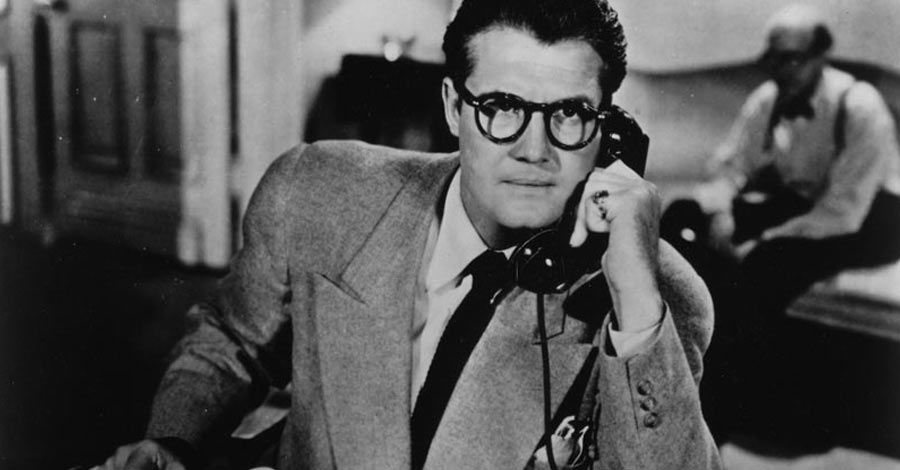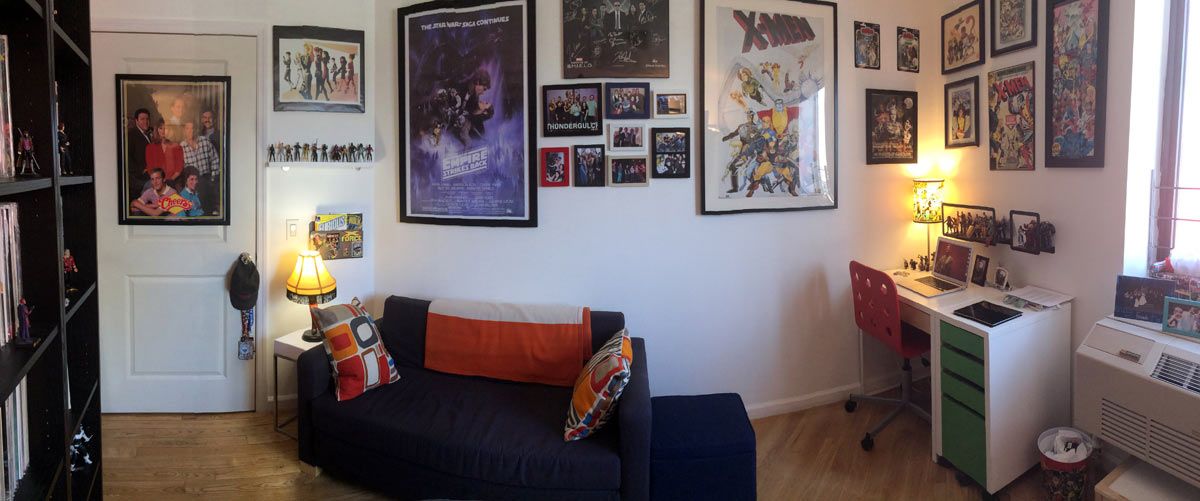It's 9:12 a.m. I've just had a breakfast of chocolate cookies (Come on, that's no worse than Pop Tarts, right?) and I have Real Estate's latest album, "Atlas," playing in the background while I write this week's IN YOUR FACE JAM. Weird detour into a seven year old's fantasy breakfast aside, that's pretty much how I spend my Wednesday mornings. That's how this JAM sausage is made.
There's been a little bit of a hubbub in my Twitter feed over the past few days about the comics journalism profession, and I thought I'd kick off this week's article with a little behind the scenes info. Now, my own sense of self deprecation and my lack of a college degree in journalism makes me wary to pin the label "comic book journalist" on myself, even though I guess that's what I am. More honesty: I looked up how to type out "a.m." because I really couldn't remember if it should have periods or be capitalized. A solid journalist would probably know that off the top of their head, but a crappy one wouldn't even bother double-checking.
Back on point, the hubbub. I've seen a number of Twitter conversations and a blog post or two about the comic book journalism profession, specifically on the topic of payment. As I've recently become aware, not every notable comic book news site out there pays. I realized that I've written 100 of these columns and I've never revealed how I arrived at this crazy point in my life -- a point that involves my favorite comic book website proudly publishing a list of comic book dudes I find attractive. I realized that I've read a lot of posts about breaking into the biz as a writer, artist, colorist and letterer, but I don't think I've ever read one focusing on writing about comics. Here's my story. Curtain, stay pulled back.
Retrospect can look a lot like a series of knocked over dominos. I turn 30 on Sunday, so yeah, I'm big on retrospect right now. The first domino got knocked over way back in June 2006 when I received word that my interview for an internship at "The Late Show with David Letterman" went well. I was going to become a research intern for the Fall 2006 semester. I moved to New York City, and I got a job at a television talent department right out of my internship. As a single, 22-year-old gay man in New York City, I decided to start dating -- something that I hadn't done and found hard to do back in -- let's say "less diverse" Tennessee. That decision led me to an improv show at the Peoples Improv Theater (I just Googled to make sure it's not "theatre") in February 2007. On my prospective date's improv team was a guy named Ethan Kaye, a guy that freelanced for "ToyFare" magazine. Domino two. After a year of friendship, Ethan introduced me to "ToyFare's" managing editor, Adam Tracey, who was taking on a new role in Wizard Entertainment's conventions department. Domino three. I got a job at Wizard as the first ever -- and only ever -- associate editor of the conventions department. By the time I left Wizard in spring 2009 (I can seriously never remember when I should capitalize seasons), I was kinda set for life in the comic industry contacts department. Every comic book writing gig I've gotten since then has come from a former Wizard person. Domino four, knocked over.
While those first four dominos will be hard for aspiring comic book journalists to recreate in the very near future -- "The Late Show's" going through some big changes next year, you know -- how I specifically ended up at CBR might be replicable. Back in September 2011, I wrote a rant about Bunker, the then new gay member of the Teen Titans, on my personal Tumblr. CBR editor (and fellow Wizard alum) Kiel Phegley saw it, got me in touch with CBR EP Jonah Weiland, and just over a week later I wrote my first op-ed for CBR -- one that pretty much disagreed with everything I wrote in my initial Tumblr post, by the way. Opinions can change!
That's a long, roundabout way of getting to my point: if you want to write about comics, write about comics. If you want to write for comics on a big news site, you can only get that job through writing about comics. Everything you put on the Internet can be part of an online resume; you prove that you've got the goods every time you put your fingers to a keyboard. When I got this CBR gig almost three years ago, I only had my Tumblr and a handful of jokey lists for Topless Robot under my belt. I didn't submit an actual resume and cover letter; the stuff I'd written on my own on my own site filled that void.
Sidenote: "Atlas" has ended, so I put on A.C. Newman's "Get Guilty." The number of albums I can write to is very small.
I do feel privileged, though. My first freelance writing job paid, and every one that's followed has as well. I didn't even know that some of my peers write for free until about a year ago. I'm spoiled, and I fully acknowledge the help I've gotten as a member of the ex-Wizard Entertainment employee illuminati. The majority of Earth doesn't have that connection, and that's why I'm not really bothered by popular websites not paying their writers. People getting their start have to start somewhere.
I am one of the rare unicorns that works exclusively as a comic book journalist. I earn enough to eat three meals a day and I'm not in a crazy amount of debt, and I pull that off from writing about comics. Because of that, I will never write for someone else for free. Getting a gig writing for a known comic book website, even if it doesn't pay, can be a big foot in the door for people that have yet to make connections. By all means, build up your bylines -- but don't stop looking for paying work elsewhere.
I don't want to call any site that doesn't pay predatory. The only comic book site I ever ran was backed by a maaaaaajor cable network, so I am incredibly not aware of the headaches and cost of running an independent website. Site maintenance costs money, and a site does have to exist for writers to write for it. And those sites can provide fantastic experience for aspiring writers trying to get their work seen. But I do wonder how many freelance writers make the jump from unpaid work to exclusively paid work, and how many of them continue to turn in unpaid work out of loyalty to or pride in their old site once paychecks start coming in from elsewhere. These are all personal decisions that everyone has to make for themselves as they build a career, but just know that however fun this is -- and it is fun, in case you missed the fact that I published a list of my comic dude crushes -- it's still work. And work deserves compensation.
I had to look up the definition of "compensation" just to be safe, which led me to learn that I'm specifically using the word's North American meaning. It's 10:19 a.m. and "Get Guilty" is just past the halfway mark. I'm laying down on the couch in my office, which is usually what I do to encourage myself to write freely; I guess my subconscious feels judged by my desk chair? I'm second guessing everything I've written and anticipating getting guff from other comic book journalists that I consider to be way more eloquent than I am. I'm convinced that this is going to burn some bridges or, at the very least, inspire people to send me nasty tweets. I worry a lot, I worry every week -- but I don't worry for free.
Brett White is a comedian living in New York City. He co-hosts the podcast Matt & Brett Love Comics and is a writer for the comedy podcast Left Handed Radio. His opinions can be consumed in bite-sized morsels on Twitter (@brettwhite).


